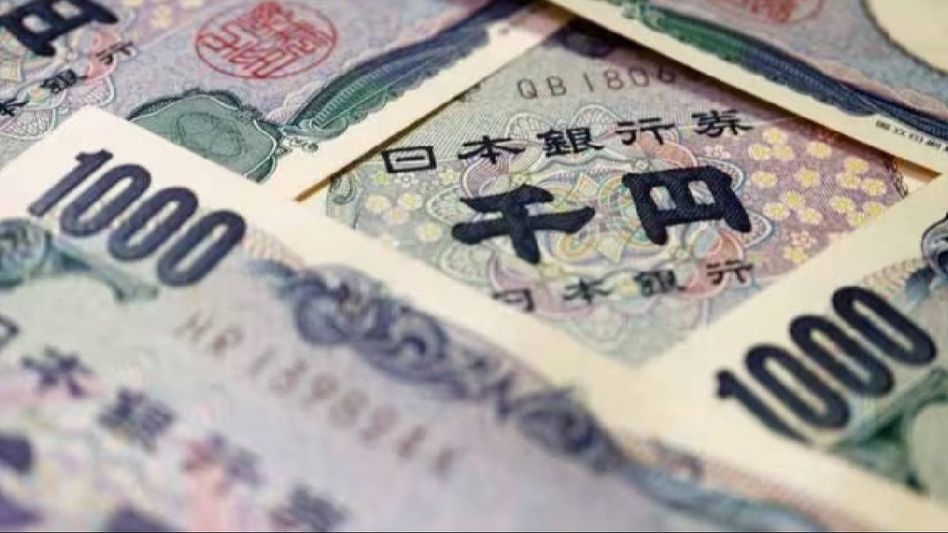Japan in Recession, loses Spot as World's Third-Largest Economy
Japan's economy unexpectedly enters a technical recession, losing its spot as the world's third-largest economy to Germany. Weak domestic demand and consecutive quarters of contraction raise questions about the central bank's plan to exit its ultra-easy policy.
 Germany overtakes Japan as world's third-largest economy
Germany overtakes Japan as world's third-largest economyJapan's economy abruptly entered a recession on Thursday, causing it to lose its ranking as the third biggest in the world.
What causes Japan's recession?
Japan's economy has been negatively impacted by weak domestic demand, which has caused an unanticipated contraction for the second consecutive quarter. This has raised concerns about the central bank's intentions to end its ultra-easy policies at some point this year.
When does a recession occur in a nation?
A technical recession is often defined as two consecutive quarters of decline.
Which nation has taken the position of Japan?
Germany's economy currently ranks third in the world.
Because firms and families curtailed spending for the third consecutive quarter, Japan's economy shrank to the fourth biggest in the world last year in US dollars.
Measured in US dollars, the International Monetary Fund (IMF) predicted in October of last year that Germany will likely surpass Japan as the world's third-largest economy.
GDP of Japan
In contrast to the previous year, Japan's gross domestic product (GDP) shrank by a less than anticipated 0.4% in the last three months of 2023.
It followed a 3.3% contraction in the nation's GDP in the preceding quarter.
What comes next?
The Bank of Japan's (BOJ) prediction that growing salaries will support consumption and support phasing down its enormous monetary stimulus may be called into question by the dismal economic statistics.
“There’s a risk the economy could shrink yet again in the January-March quarter due to slowing global growth, weak domestic demand and the impact of the New Year quake in western Japan,” a report by Reuters quoted Takuji Aida, chief economist at Credit Agricole, as saying.
“The BOJ could be forced to sharply downgrade its rosy GDP forecasts” for 2023 and 2024, he added.
Data that indicates Japan's recession
According to the report, private consumption—which accounts for over half of economic activity—fell 0.2% as opposed to the 0.1% increase that experts had predicted. This is allegedly due to households cutting back on spending due to growing living expenses.
For the tenth consecutive month, household expenditure decreased in December by 2.5% from a year earlier as pay increases fell short of inflation.
Another important driver of private sector development, capital spending, decreased by 0.1% versus expectations of a 0.3% increase.
The BOJ has been striving to update other aspects of its ultra-loose monetary policy and eliminate negative rates by April. But given the residual dangers, any further policy tightening is probably going to go cautiously, according to sources cited in a Reuters story.
Although BOJ officials have not said when they would specifically stop negative rates, a number of market participants anticipate that this will occur in either March or April.
According to several analysts cited in the study, Japan's strong business investment intentions and competitive labour market are preserving the possibility of an early withdrawal from the ultra-loose policy.
“While the second consecutive contraction in GDP in Q4 would suggest that Japan’s economy is now in recession, business surveys and the labour market tell a different story. Either way, growth is set to remain sluggish this year as the household savings rate has turned negative,” Marcel Thieliant, head of Asia-Pacific at Capital Economics said.
“The (BOJ) has been arguing that private consumption has ‘continued to increase moderately’ and we suspect that it will continue to strike an optimistic tone at its upcoming meeting in March,” Thieliant said, sticking to his projection the bank will end its negative interest rate policy in April.
How has the announcement of Japan's recession affected the yen?
The data release did not result in a significant movement in the value of the yen. At 150.42 per dollar, the Japanese yen was trading close to a three-month low that was reached earlier this week.
The Nikkei gained 1%, recovering some of the losses from the previous session, presumably due to hopes that the BOJ will extend its huge easing plan beyond what was initially anticipated.
Copyright©2025 Living Media India Limited. For reprint rights: Syndications Today









